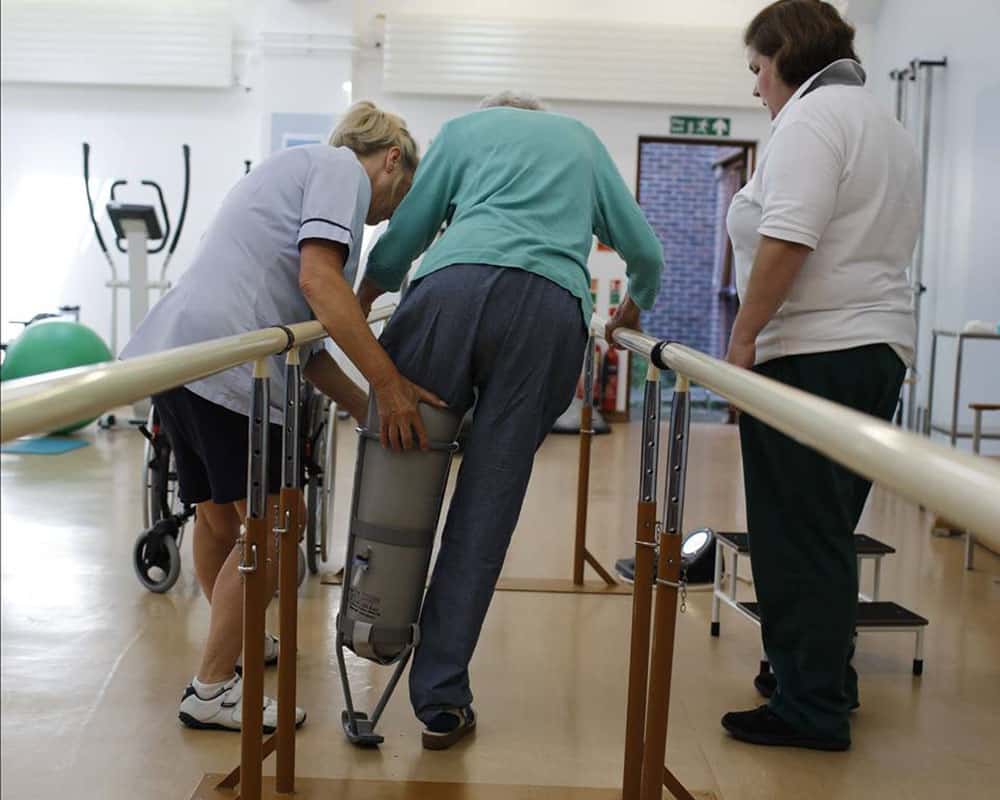Ground-breaking clinical trial at hospital uses robotic tech to teach people how to walk again

East Kent Hospitals University NHS Foundation Trust is leading a revolutionary clinical trial at the Kent and Canterbury Hospital, which will help patients regain their mobility and independence.
The trial, led by East Kent Hospital’s neuro-rehabilitation director Dr Mohamed Sakel and consultant clinical and research neuro-physiotherapist Karen Saunders, uses the latest robotic technology to help people with progressive conditions, like multiple sclerosis, re-learn how to walk again.
According to the Foundation Trust, results so far have been positive, with patients travelling from across the UK to take part in the trial.
Dr Sakel said that the trial had the potential to improve the lives of hundreds of patients.
He commented: “At times, we encounter patients who have been told that nothing can be done and now we have an opportunity to give them the option of something that could make a real difference to their lives.
“We are enabling patients to rediscover muscles and movement that may have become somewhat lost over time. They are re-learning how to balance and to move more easily.
“The machine takes away the risk of falling and the fear that accompanies it and allows people to become confident in a safe environment. They can retrain their muscles and build up their strength so they are able to realise the benefits outside of the machine as well.”
During the trial, patients are securely positioned into the machine, known as a Rex robotic exo-skeleton, and complete a programme of balance exercises.
This includes strengthening core abdominal muscles, lifting arm weights and throwing and catching a balloon. It also ‘walks’ them forward and back slowly, allowing them to focus on their core abdominal muscles to improve balance, mobility and strength.
The trial has recruited 20 patients and, when the results are analysed, it could become available to patients outside of research, if the benefits are proven.
Dr Sakel concluded: “We have to show it works, it is safe and maintainable and then we can recommend it.
“When we have research-based evidence we can begin to consider practice-based evidence. Obviously most people can’t have a machine at home – they cost in excess of £100,000 – but we could consider how to offer the benefits to hundreds of patients through our clinics.
“At the moment, a lot of the work around multiple sclerosis is focussed on patients who are already very disabled, but we know there are a lot of people living with the condition and simply adapting their lifestyles, such as moving to a bungalow or giving up work. Those are the people we believe we can help the most.”

